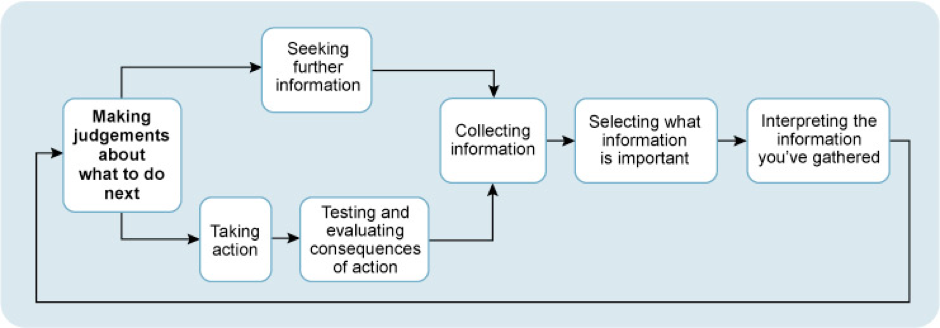A cycle of inquiry (see Figure 1) is an iterative process of collecting and interpreting information that will enable you to make decisions about what action to take next. It has a built in cycle that will enable you to collect more information if you feel there is not enough to make that decision about the next action.
Figure 1: The cycle of inquiry (Open University, 2016)

A cycle of inquiry will usually be carried out for two circumstances:
- When an unexpected event has occurred in your project and you need to take a quick decision about changes you may need to make to it – this is called refection-in-action.
- When you think that a part of your project needs to be improved the next time it occurs in your project and you have time to reflect on what form this improvement may take e.g. how you conduct and interview or meeting, e.g. how you conduct and interview or meeting – this is called reflection-on-action.
Both may be required at different times as a project progresses.
The two important elements of a cycle of inquiry to make it effective is the information you select which will help you then reflect well when interpreting this information. In your reflections you will need to think about what theories and frameworks help you understand the information, critiquing them to identify their strengths and weakness and any adaptations you will need to make to make them work in the context of your project.
Cycles of inquiry are an important link between the theories and frameworks you have studied and the practicalities of using them effectively in your work/project context.
Another way of looking at what a cycle of Inquiry consits of has been produced as a digram by my colleague Rob Moore and is shown in the attached fil, ans asks a series of questions to help you develop your understanding of what is happening and what you need to do next.
Comments
Cycle of Inquiry Citation
Hi Ian
Could you include the full citation reference for the Open University source of the Cycle of Inquiry diagram?
Kind regards
Emma